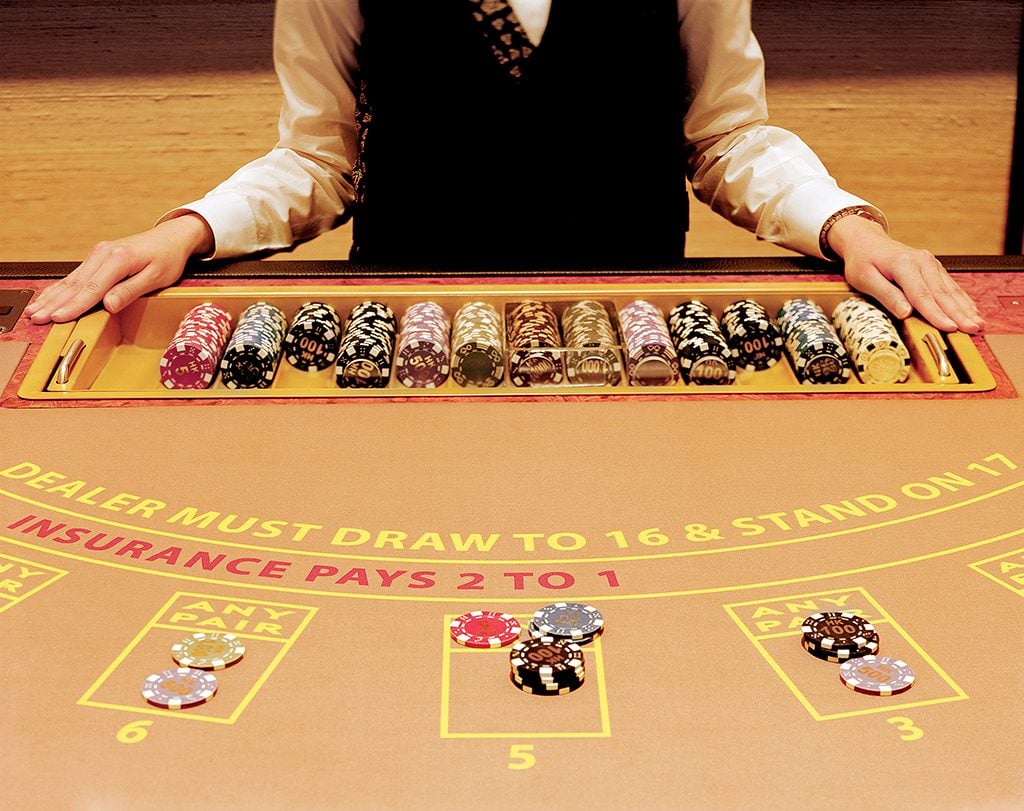When we think of casino games, the initial images that often cross our minds are those of spinning roulette devices, card tokens clinking on fabric surfaces, and dice flying across a gaming area. While many view these activities as mere hobbies fueled by chance, a deeper exploration reveals a captivating blend of strategy, expertise, and social interaction that elevates them well beyond basic luck. Whether you are a experienced player or a inquisitive newcomer, grasping the nuances of these games can greatly enhance your enjoyment and appreciation.
Casino games have developed over hundreds of years, with different cultures contributing to their diverse backgrounds and variations. From the intricate strategies of 21 to the bluffing tactics in card games, players engage in a contest of wits as much as a gamble on numbers. This exciting interplay between chance and expertise creates a thrilling atmosphere that draws millions to gambling establishments worldwide. As we explore the world of table games, we will uncover the strategies that can shift the odds in your advantage and the community aspects that make these games a popular choice for leisure and interaction.
The Approach of Table Gaming
Casino gaming frequently combine a blend of skill and chance, making them fascinating for participants who like a challenge. Every title has their unique set of guidelines and strategies that can influence the outcome. For instance, in games like 21, participants are required to use tactics like counting cards and understanding the probabilities to make informed decisions. This expertise can greatly improve their victory potential, distinguishing seasoned players from novices who may depend entirely on chance.
Conversely, titles such as the roulette may appear to be entirely based on chance, but tactical thinking can also play into play. Participants can choose between different wagering strategies, such as the Martingale system, in which they raise the bets after a loss. liên minh okvip This method can establish a more controlled approach to the game. Understanding the odds of specific wagers can also assist players make better decisions on the roulette table, demonstrating that even in titles of luck, tactics can enhance the enjoyment.
Furthermore, poker stands out as a title that strongly emphasizes strategy. In contrast to most casino titles, poker combines skill, psychology, and luck. Participants must not only concentrate on the hands they are dealt but also consider their opponents actions and betting patterns. Mastering concepts like position, pot odds, and interpreting bluffs is essential for winning. This depth of tactics in poker often creates to a more engaging experience for participants, as their choices and skills greatly impact the game’s results.
Comprehending Chance and Odds
In the domain of casino matches, probability and ratios hold a vital role in deciding a gambler’s potential consequences. Every match has its own collection of principles that define how the chance of succeeding or losing is measured. For example, in games like blackjack, players have a chance to affect their odds through strategy, whereas in games like roulette, the outcomes are purely dictated by luck. Comprehending how these chances are measured can significantly impact how a player deals with the game.
Ratios are typically expressed in two formats: ratio and decimal. Fractional odds indicate the proportion of the sum won to the sum bet, whereas numeric odds show the overall payout for a winning bet, which includes the stake. For example, if a game has ratios of 5 to 1, this implies that for every one dollar bet, a player could win five dollars if they win. Learning how to read these ratios allows gamblers to assess their potential winnings and formulate more informed choices during gameplay.
Players should also be conscious of the house edge, which is the casino’s built-in benefit over the gamblers. Each match has a distinct advantage, and understanding this concept is crucial for managing one’s expectations and bankroll. Activities with a lower advantage, such as 21 and chemin de fer, typically offer superior ratios for players compared to games like slots and lottery. By understanding the relationship between chance, ratios, and the house edge, gamblers can improve their gaming engagement and plan more effectively.

The Social Aspect of Table Gaming
Casino games at gaming establishments are often seen as a hub of community engagement, bringing players together in a shared experience that goes far past the mere act of playing games. The atmosphere at a blackjack table can be vibrant, with gamblers engaging not only with the game itself but also with each other. Joy, cheers, and, occasionally, playful teasing create connections that enhance the overall experience of the gaming experience. This communal aspect can turn a solitary endeavor into a lively social event, making casino games particularly enticing.
One of the intriguing elements of gaming at tables is the way it fosters friendship among participants. Whether it’s teaming up to defeat the dealer at a dice table or sharing stories between hands in a card game, the environment encourages communication. Participants often share tips or strategies, creating a sense of community that enhances the fun. This interpersonal atmosphere can make new gamblers feel welcomed and less daunted by the competitive nature of casino games. As the game continues, friendships may form, leading to a sense of connection that keeps players coming back to the table.
Moreover, the social aspect of gaming at tables extends beyond just the players. Casino staff play a crucial role in encouraging interaction and maintaining the flow of the game. Their ability to engage players with warm dialogue and their expertise in managing the table can create an inviting atmosphere. This connection between participants and dealers adds another layer of enjoyment, where players feel connected not only to one another but also to the staff. Such interactions are often what make the experience unforgettable, as participants leave with stories to tell and relationships made, reinforcing the notion that table games are truly about more than just chance.